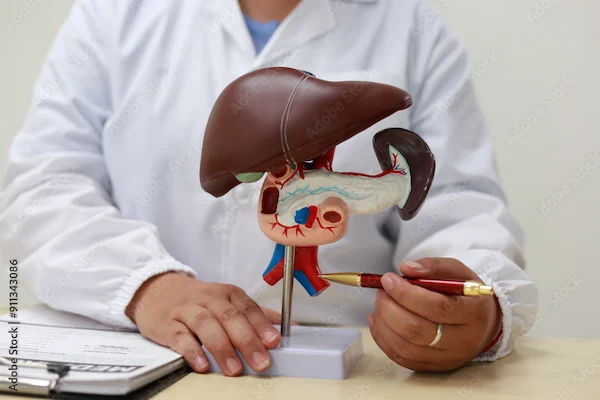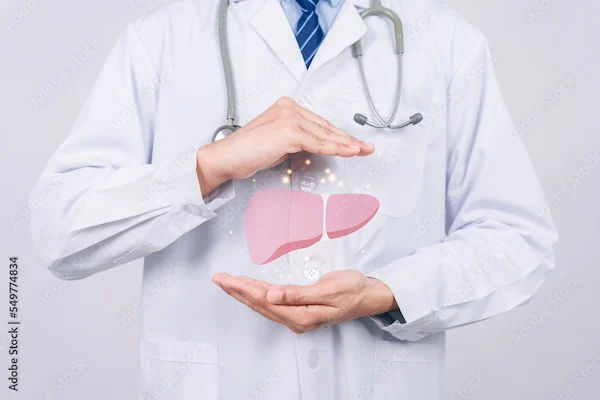Understanding Hepatitis B and C: Causes, Symptoms, Diagnosis, and Treatment
Hepatitis B and C are blood-borne viral infections that affect the liver. Learn about their causes, transmission, symptoms, diagnosis, and available treatments, including vaccination for hepatitis B and antiviral therapies for hepatitis C.

Written by Dr.Sonia Bhatt
Last updated on 3rd Jul, 2025

Hepatitis B and C are blood-borne viral infections that mainly affect the liver. Hepatitis B affects approximately 350 million people worldwide and is a major cause of liver cirrhosis and transplants. These infections are often called "silent killers" because they develop gradually over many years, with most individuals showing no symptoms and being unaware of their condition.
Both viruses spread through contact with infected blood, leading to liver inflammation. Hepatitis B can be prevented with a vaccine, but no vaccine is currently available for hepatitis C.
Causes and Transmission of Hepatitis B and C
Hepatitis B and C spread primarily through contact with infected blood or bodily fluids. The main modes of transmission include:
Sharing Needles and Drug Equipment: Using contaminated needles, syringes, or other drug-related equipment increases the risk of infection.
Mother-to-Child Transmission: An infected mother can pass hepatitis B or C to her baby at birth, with a higher risk if co-infected with HIV.
Sexual Transmission: Hepatitis B is more commonly transmitted through unprotected sex, while hepatitis C is less likely but can occur, particularly among men who have sex with men.
Medical and Dental Procedures: Unsafe medical or dental practices using unsterilised equipment can lead to infection.
Occupational Exposure: Healthcare professionals may be at risk through accidental needle stick injuries or exposure to infected blood.
Epidemiology and Risk Factors of Hepatitis B and C
Hepatitis B and C are transmitted through blood and bodily fluids, with specific risk factors influencing the likelihood of infection.
1. Hepatitis B
Hepatitis B is often contracted in early childhood but can also affect adults. The virus spreads through bodily fluids and can be transmitted in several ways, including:
Infected mother to child during giving birth
Through contact with infected blood, bodily fluids, or contaminated medical instruments, particularly in childhood
By using intranasal or injected drugs
Through unsterilised equipment used for tattoos and body piercings
2. Hepatitis C
Several factors increase the risk of contracting hepatitis C, such as:
Using intranasal or injected drugs
Receiving tattoos or body piercings with unsterilised equipment
Engaging in high-risk sexual activities
Having a blood transfusion before 1992, before routine blood screening was introduced
Undergoing an organ transplant before proper screening measures were in place
People born between 1945 and 1965 are also at a higher risk of hepatitis C, as infection rates were particularly high during this period. In certain countries, many of those currently living with the virus were born within these years.
Pathophysiology of Hepatitis B and C
Both hepatitis B and C viruses target liver cells and cause inflammation. Once inside the liver, the viruses replicate, prompting the immune system to attack infected cells. This immune response can cause liver damage, leading to scarring (fibrosis) over time. If left untreated, chronic infection can progress to cirrhosis, liver failure, and an increased risk of liver cancer.
Hepatitis B and C are often asymptomatic for years, with many people unaware they are infected. While hepatitis B may be cleared by the body in some cases and can be prevented with a vaccine, hepatitis C tends to persist long-term due to the virus's ability to evade the immune system, and there is no vaccine for it.
Symptoms of Hepatitis B and C
Hepatitis B and C can cause similar symptoms during both acute and chronic stages.
1. Acute Hepatitis B
Symptoms of acute hepatitis B typically develop within six months of infection and may include:
Dark yellow urine
Fatigue
Fever
Joint pain
Nausea
Pale or grey stools
Vomiting
Jaundice (yellowing of the skin or eyes)
Some young children with hepatitis B may not show any symptoms.
2. Chronic Hepatitis B
Around 15–25% of individuals with hepatitis B develop chronic liver disease, which can lead to:
Liver damage
Cirrhosis
Liver cancer
3. Acute Hepatitis C
Acute hepatitis C may present with symptoms similar to those of acute hepatitis B. However, hepatitis C is more likely to become a chronic condition.
4. Chronic Hepatitis C
Between 5–25% of individuals with chronic hepatitis C may develop cirrhosis (liver scarring). Many people may not be aware they are infected with hepatitis B or C until they undergo screening for other blood-related conditions.
5. Liver-Related Symptoms
Both hepatitis B and C can cause symptoms that suggest liver problems, such as:
Fluid retention
Pale stools
Bleeding difficulties
Diagnosis of Hepatitis B and C
Hepatitis B is diagnosed through blood tests that can identify either an active infection or antibodies indicating immunity to the virus. If the initial test suggests an ongoing infection, further testing is done to determine the quantity of the virus in the bloodstream.
Hepatitis C is diagnosed with a blood test known as the Hepatitis C Antibody Test. A positive result shows that hepatitis C antibodies are present, but it does not confirm the presence of an active infection. A follow-up test is required to measure the viral load in both the blood and liver to confirm the diagnosis.
Treatment for Hepatitis B and C
Not all cases of hepatitis B require medication. For acute hepatitis B, there are no specific antiviral treatments. The focus is on adequate rest, staying well-hydrated, and a balanced, nutritious diet. These measures help manage symptoms and prevent dehydration from vomiting or diarrhoea.
For chronic hepatitis B, antiviral or immune-modulating drugs are typically prescribed, such as:
Entecavir
Tenofovir
Adefovir
Telbivudine
Pegylated interferon
These drugs are often taken long-term, from several months to years.
Antiviral treatments have been developed to treat and cure most cases of hepatitis C. Commonly prescribed medications include:
Daclatasvir
Elbasvir/grazoprevir
Glecaprevir and pibrentasvir
Ledipasvir/sofosbuvir
Ombitasvir/paritaprevir/ritonavir
Simeprevir
Sofosbuvir
Sofosbuvir/velpatasvir
Sofosbuvir/velpatasvir/voxilaprevir
Ribavirin may also be used alongside these treatments. The treatment duration is usually 8 to 24 weeks, depending on the hepatitis C genotype.
Doctors may also recommend lifestyle changes to promote liver health, including:
Avoiding alcohol, which can worsen liver damage
Avoiding medications, including herbal and nutritional supplements, that are processed by the liver
Maintaining a balanced, healthy diet to support overall health
Prevention of Hepatitis B and C
A vaccine is available for hepatitis B, which encourages the body to produce antibodies that fight the virus. People at higher risk, such as infants and those with HIV, should receive the hepatitis B vaccine. The vaccine is typically offered to children as part of routine school and public health programmes.
There is no vaccine for hepatitis C, but the risk of transmission for both hepatitis B and C can be reduced through practices like:
Not sharing needles
Using protection during sexual activity, particularly for those with multiple partners
Ensuring that the healthcare workers receive proper training on safe needle use
Choosing tattoo parlours that follow strict hygiene and safety procedures
Avoiding the sharing of personal items, such as razors or toothbrushes
Conclusion
Both hepatitis B and C can have both immediate and long-lasting effects, but hepatitis C is more likely to become chronic than hepatitis B. Hepatitis B is transmitted through bodily fluids, while hepatitis C is primarily spread through contact with infected blood.
The risk of hepatitis B can be lowered by getting vaccinated, and chronic hepatitis C can often be managed with treatment. People with risk factors for either type of hepatitis should seek medical advice about testing and prevention.
Consult Top Hepatologists
Consult Top Hepatologists

Dr. Srinivasa Reddy
Hepatologist
12 Years • MBBS, MD (General Medicine), DM (Hepatology),ASGE
Hyderabad
Myra Liver & Gastro Care, Hyderabad

Dr. E Prabhakar Sastry
General Physician/ Internal Medicine Specialist
40 Years • MD(Internal Medicine)
Manikonda Jagir
Apollo Clinic, Manikonda, Manikonda Jagir
(125+ Patients)

Dr. Sushith C
General Physician
2 Years • MBBS
Bengaluru
PRESTIGE SHANTHINIKETAN - SOCIETY CLINIC, Bengaluru

Dr Amey Sonavane
Gastroenterology/gi Medicine Specialist
11 Years • "MBBS, DNB (Internal Medicine) DNB (Gastroenterology) "
Mumbai
Apollo Hospitals CBD Belapur, Mumbai
(75+ Patients)

Dr. Aakash Garg
Gastroenterology/gi Medicine Specialist
12 Years • MBBS, DNB (Medicine), DrNB (Gastroentrology).
Bilaspur
Apollo Hospitals Seepat Road, Bilaspur
(125+ Patients)
.webp)



